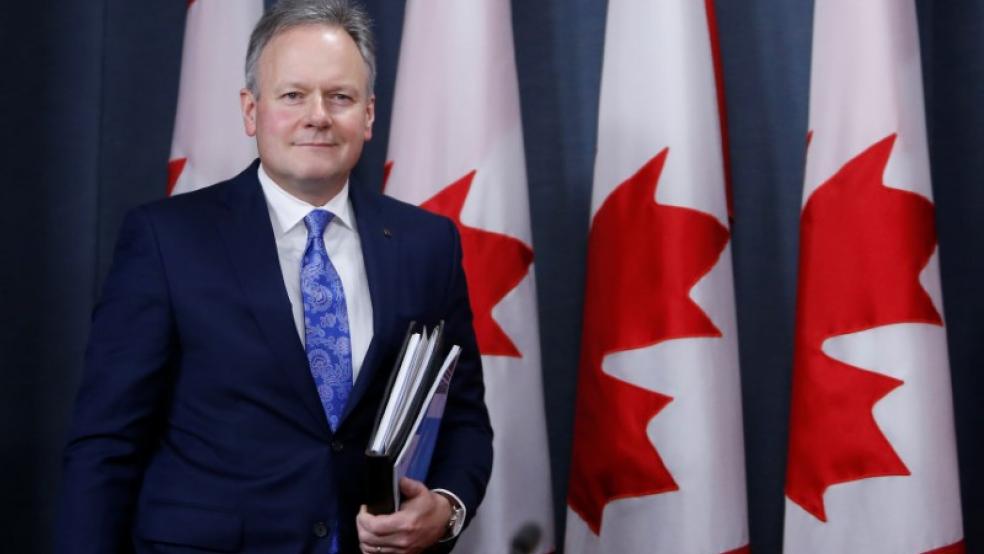OTTAWA/BENGALURU (Reuters) - The Bank of Canada will kick off 2018 by hiking interest rates, buoyed by robust job growth, even as uncertainty around the fate of the North American Free Trade Agreement lingers, a Reuters poll found.
Analysts expect the BoC to raise rates three times this year, starting on Wednesday with a 25 basis point increase that will take the benchmark borrowing cost to 1.25 percent.The central bank raised rates twice back-to-back last year as it removed monetary stimulus it put in place in 2015 amid a collapse in the price of oil, a major export for Canada.Bank of Canada Governor Stephen Poloz said last month he is increasingly confident the economy will need less stimulus over time, even as he reiterated labor market slack poses a downside risk. December's unexpectedly large increase in jobs, as well as a survey showing Canadian companies remain optimistic about future sales are both likely to be factors in the central bank's decision to hike this week, said Brian DePratto, senior economist at TD."The ongoing strength in the Canadian economy no longer justifies emergency level interest rates."Expectations of a January rate hike were initially dampened by a Reuters report last week that Canada is increasingly convinced President Donald Trump will soon announce the United States intends to pull out of NAFTA.Given Canada sends over three quarters of exports south of the border, its economy could be hit if Washington scraps the trade agreement which Trump has repeatedly blamed for American job losses and big trade deficits for his country.But market odds of a hike have bounced back up to 77 percent while the poll gave a median 70 percent chance of an increase.Bank of Canada to start 2018 with a hike, despite NAFTA risks

Chris Wattie



